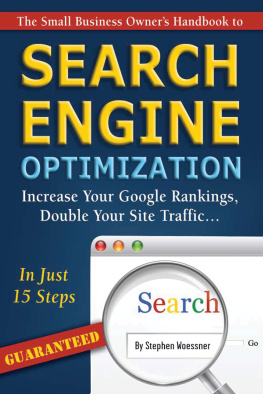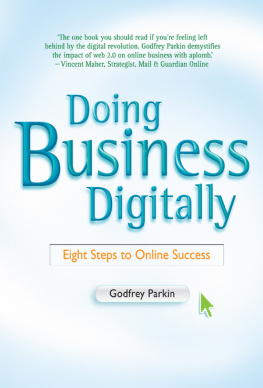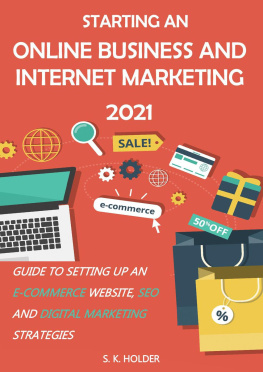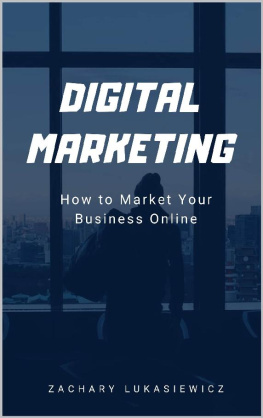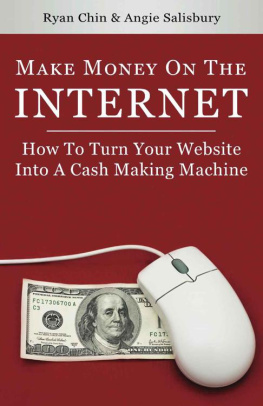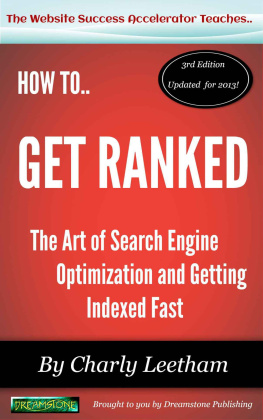Making an impact online on a Shoestring
Creating a website that really works without breaking the bank
Antin Lachtnin

First published in Great Britain 2007 by A & C Black Publishers Ltd,
This edition published 2011 by
Bloomsbury Publishing Plc, 50 Bedford Square, London WC1B 3DP
www.acblack.com
Copyright Antin Lachtnin, 2011
The author asserts his moral rights in the work.
All rights reserved. You may not copy, distribute, transmit, reproduce or otherwise make available this publication (or any part of it) in any form, or by any means (including without limitation electronic, digital, optical, mechanical, photocopying, printing, recording or otherwise), without the prior written permission of the publisher. Any person who does any unauthorised act in relation to this publication may be liable to criminal prosecution and civil claims for damages.
No responsibility for loss caused to any individual or organisation acting or refraining from action as a result of the material in this publication can be accepted by the Publishers or the author.
A CIP record for this book is available from the British Library.
Print ISBN: 978-1-4081-3990-5
Electronic ISBN: 978-1-4081-3991-2
Visit www.acblack.com to find out more about our authors and their books. You will find extracts, authors interviews, author events and you can sign up for newsletters to be the first to hear about our latest releases and special offers.
Contents
How is the Internet affecting your business? Even if you dont use it yourself, your customers and suppliers already are. Buying and selling online is an everyday activity for many consumers. Some of your suppliers are probably selling online and may be trying to find ways to reach the end-customer directly. As a result, they may be able to sideline or bypass smaller businesses such as yours.
Dontsitidly by and watch this happen! Big opportunities await small businesses on the Internet and there are many ways you can make your company more efficient and attractive for your existing customers by providing even basic services to them online. There are also opportunities for growth. Although the media give all the attention to multi-million dollar Internet deals, there are many successful small and one-person businesses trading successfully online, and sites like eBay and Google provide access to a global marketplace for all businesses. If you can provide a distinctive product or service that people want, there is no reason why the Internet cannot help you build a successful small company.
So how do you get started? Thats where this book comes in. It will help you get the basics in place, including the right domain name, a good broadband connection, an e-mail set-up and a social media presence with the likes of Facebook. It guides you through the process of setting up a basic website that will meet your business needs, and explains how to sell goods and receive payments off it, if thats appropriate to you. It also explains the basic principles of Internet marketing and gives you straightforward, practical strategies that will get the word out about your business and bring traffic to your website.
Making do on a shoestring budget is an issue for any small business trying to get online: you may not be in a position to invest money in something that isnt going to generate income right away. The good news is that many of the strategies in the book can be implemented without spending a fortune, and some can even save you money in the short term (by reducing your use of the phone and fax, for example). When splashing out is unavoidable, this book suggests ways in which you can use your cash as effectively as possible. There are also warnings about some of the pitfalls related to budget-watching: not every potential cost saving is worthwhile, especially if theres a risk that it could cause serious disruption later on.
Most importantly, this book will help you to think strategically about doing business online. The Internet is changing business profoundly: customers have more choice and distance is less of a barrier than ever before. How do you make your business stand out in this new world? Each chapter will present examples of websites that demonstrate how companies large and small have tapped into the power of the Net to create better customer relationships or to make their businesses more efficient.
Your shoestring budget shouldnt be a barrier to getting on the Internet. As long as you have good ideas and follow the steps, youll have no trouble making an impact online.
1
CREATING AN EFFECTIVE INTERNET STRATEGY
The Internet has revolutionised the way many businesses operate, and while it has hampered some small businesses, its helping many others to grow. So how can you make the Internet work for your business, without spending a lot of money? The first thing is to think strategically.
Strategy is a broad topic, but the most important thing to do when devising a business strategy is to step back from your business and look at it in a new way.
For example, Jeff Bezos, founder of the Internet mail-order company Amazon.com realised that the most important part of a bookshop business was not the actual stock and the shop premises but the information supplied about the books. He concluded that if this information were cleverly presented, it could provide a valuable service to book purchasers. As a result of this thought process, Amazon is now by far the biggest book retailer in the world and has a strong presence in many other retail areas too.
Similarly, when Pierre Omidyar started up eBay, he recognised that having physical premises was not essential to running an auction house for second-hand goods. He built an auction house on the Internet, so that sellers and buyers could list goods and make bids from their home or office. As a result, his costs were much lower than those of a conventional auction house and he could quickly scale his business to handle hundreds of thousands of sales. Today, eBay handles more auctions than anybody and the business has expanded to take in classified ads, local advertising and electronic payments.
In the UK, Tesco took its retail business and, using a relatively simple website, made it possible for customers to order online. Many of their online grocery counterparts invested heavily in developing special warehouse facilities to handle online sales. Tesco chose to do things in a cheaper, simpler way. It used its existing stores as depots and employed its existing staff to do the packing. As a result, its investment was relatively small and the venture was able to become profitable within a short time. Of course, this was only possible because Tesco was such a well-known brand and already had some of the IT (information technology) systems it needed in place. This strategy has helped Tesco become the third-biggest online retailer in the UK.
Directski.com, a small web-based winter sports tour operator which began operating in the Irish marketplace, has established a substantial business selling ski holidays to the British, US and European markets. Customers can now book their flights and package holidays less expensively through its Internet website.
At the same time, small local travel agents of a similar size to Directski.com have gone to the wall as a result of the Internet revolution. Companies such as Directski.com can survive, in spite of their small size, by focusing on a niche and providing a level of customer service that is not available from the big players.


